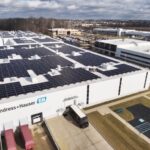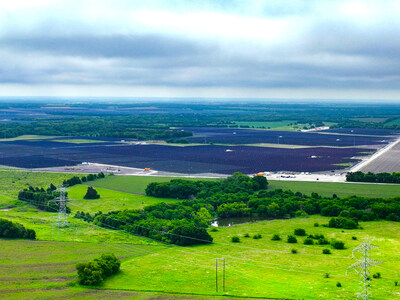Indiana Court of Appeals strikes down utility’s attempt to circumvent net-metering
A broad coalition of solar companies, environmental and consumer advocates, led by the Indiana Office of Utility Consumer Counselor (OUCC), has prevailed at the Indiana Court of Appeals in a case challenging approval by the Indiana Utility Regulatory Commission’s (IURC) of CenterPoint’s “excess distributed generation” (EDG) tariff for rooftop solar and other DG customers. CenterPoint was the first Indiana utility to file for approval of an EDG tariff following the state legislature’s overhaul in 2017 of net metering for customers of Indiana’s five investor-owned electric utilities.
That law — SEA 309 — phased out retail rate net metering and replaced the former 1:1 kilowatt-hour bill credit with a much smaller credit based on 125% of the utilities wholesale rate. That change in compensation resulted in a bill credit that is approximately 70-80% lower than what customers receive for retail rate net metering. However, as noted by the Court, the law did not change the method by which “excess” distributed generation would be calculated and the credits applied to customers’ monthly electric bills.
The law defined EDG as the “difference between” the energy delivered to the customer from the grid, or “inflow,” and the energy delivered by the customer to the grid, or “outflow.” In other words, while the law changed the bill credit rate, it still required utilities to net inflow and outflow during each billing period to determine the number of kilowatt hours of “excess” distributed generation to which the smaller credit rate would be applied.
By contrast, the CenterPoint EDG tariff approved by the IURC attempted to change how the bill credit was calculated on customers’ monthly bills by eliminating this netting altogether, replacing it with a tariff provision that charged DG customers the retail rate for every kWh delivered by the utility and credited customers at the much lower 125% of wholesale rate for every kWh of energy delivered by the customer to the grid. If approved for all of Indiana’s investor-owned electric utilities, this proposed EDG tariff provision was expected to drastically slow down rooftop solar adoption in the state. The Court of Appeals rejected the CenterPoint tariff provision because it violated the plain meaning of SEA 309.
“While there is more work ahead of us, we are thrilled with the outcome,” said Kerwin Olson, executive director of Citizens Action Coalition. “We sincerely thank the OUCC for the crucial role it played in standing up for Indiana consumers and achieving this win.”
Will Kenworthy, regulatory director, Midwest, for Vote Solar, served as an expert witness in the CenterPoint EDG proceeding before the IURC. His testimony in the case objected to the instantaneous netting interval. He stated that “fair, accurate compensation is the key to expanding residential solar. CenterPoint’s proposal was neither fair nor accurate, and I’m glad the court recognizes that. Monthly netting makes sense and is a win for Indiana ratepayers who use their hard-earned money to add more solar to the grid.”
News item from Vote Solar
<!–
–>
Original Source: https://www.solarpowerworldonline.com/2022/01/indiana-court-of-appeals-strikes-down-utility-net-metering/













